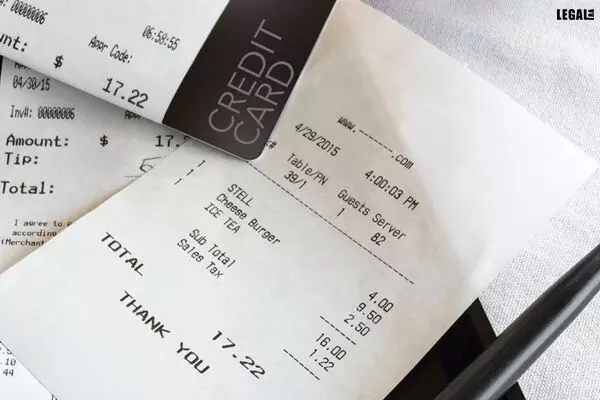- Home
- News
- Articles+
- Aerospace
- Artificial Intelligence
- Agriculture
- Alternate Dispute Resolution
- Arbitration & Mediation
- Banking and Finance
- Bankruptcy
- Book Review
- Bribery & Corruption
- Commercial Litigation
- Competition Law
- Conference Reports
- Consumer Products
- Contract
- Corporate Governance
- Corporate Law
- Covid-19
- Cryptocurrency
- Cybersecurity
- Data Protection
- Defence
- Digital Economy
- E-commerce
- Employment Law
- Energy and Natural Resources
- Entertainment and Sports Law
- Environmental Law
- Environmental, Social, and Governance
- Foreign Direct Investment
- Food and Beverage
- Gaming
- Health Care
- IBC Diaries
- In Focus
- Inclusion & Diversity
- Insurance Law
- Intellectual Property
- International Law
- IP & Tech Era
- Know the Law
- Labour Laws
- Law & Policy and Regulation
- Litigation
- Litigation Funding
- Manufacturing
- Mergers & Acquisitions
- NFTs
- Privacy
- Private Equity
- Project Finance
- Real Estate
- Risk and Compliance
- Student Corner
- Take On Board
- Tax
- Technology Media and Telecom
- Tributes
- Viewpoint
- Zoom In
- Law Firms
- In-House
- Rankings
- E-Magazine
- Legal Era TV
- Events
- Middle East
- Africa
- News
- Articles
- Aerospace
- Artificial Intelligence
- Agriculture
- Alternate Dispute Resolution
- Arbitration & Mediation
- Banking and Finance
- Bankruptcy
- Book Review
- Bribery & Corruption
- Commercial Litigation
- Competition Law
- Conference Reports
- Consumer Products
- Contract
- Corporate Governance
- Corporate Law
- Covid-19
- Cryptocurrency
- Cybersecurity
- Data Protection
- Defence
- Digital Economy
- E-commerce
- Employment Law
- Energy and Natural Resources
- Entertainment and Sports Law
- Environmental Law
- Environmental, Social, and Governance
- Foreign Direct Investment
- Food and Beverage
- Gaming
- Health Care
- IBC Diaries
- In Focus
- Inclusion & Diversity
- Insurance Law
- Intellectual Property
- International Law
- IP & Tech Era
- Know the Law
- Labour Laws
- Law & Policy and Regulation
- Litigation
- Litigation Funding
- Manufacturing
- Mergers & Acquisitions
- NFTs
- Privacy
- Private Equity
- Project Finance
- Real Estate
- Risk and Compliance
- Student Corner
- Take On Board
- Tax
- Technology Media and Telecom
- Tributes
- Viewpoint
- Zoom In
- Law Firms
- In-House
- Rankings
- E-Magazine
- Legal Era TV
- Events
- Middle East
- Africa
CCPA rules no restaurant can force service charges on users
Aggrieved customers may lodge complaints on the National Consumer Helpline by calling 1915
The Central Consumer Protection Authority (CCPA) has barred hotels and restaurants from adding service charges 'automatically or by default' to their food bill.
It said that in case of violation, a consumer could ask the hotel/restaurant to remove the service charge or seek redressal by filing a complaint on the National Consumer Helpline (NCH) against the service charged. A complaint can also be filed electronically through the e-daakhil portal www.e-daakhil.nic.in for speedy and effective redressal.
CCPA also issued guidelines for preventing unfair trade practices and violations of consumer rights.
The guidelines stipulate:
a) Hotels/restaurants shall not add service charges automatically or by default to the food bill. No collection of service charge shall be done by any other name.
b) No hotel/restaurant shall force a consumer to pay the service charge and shall clearly inform the consumer that the service charge is voluntary, optional, and at the consumer's discretion.
c) No restriction on entry or provision of services based on a collection of service charges shall be imposed on consumers. The service charges shall not be collected by adding them along with the food bill and levying the Goods and Services Tax (GST) on the total amount.
On finding that a hotel or a restaurant was levying a service charge in violation of the guidelines, the consumer may request the concerned hotel/restaurant to remove the service charge from the bill amount. Also, he/she may lodge a complaint on the NCH, which works as an alternate dispute redressal mechanism at the pre-litigation level by calling 1915 or through the NCH mobile app.
The consumer may also file a complaint against unfair trade practices with the Consumer Commission. Furthermore, the consumer may submit a complaint to the District Collector of the concerned district for investigation and subsequent proceeding by the CCPA.
Several complaints have been registered in the NCH by consumers on levying of service charges. The issues raised by consumers include restaurants making service charges compulsory and adding them to the bill by default, suppressing that paying such charges is optional and voluntary and embarrassing the consumers in case they resist paying.
Consumer commissions have ruled in favor of the consumers in several cases.




